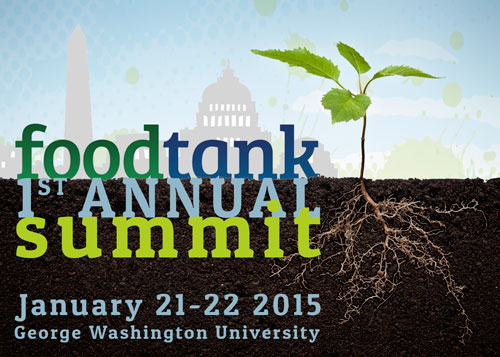Recently, Food Tank published a quick guide, ?Rethinking Industrial Animal Production,? detailing the significant and far reaching consequences of a food system dominated by industrial animal production.
Food Tank😕 The Food Think Tank, envisions building a global community for safe, healthy, nourished eaters.? The spotlight environmentally, socially, and economically sustainable ways of alleviating hunger, obesity, and poverty and create networks of people, organizations, and content to push for food system change.
Our system is broken.? Industrial animal operations account for the majority of animal production in the U.S.? The sheer size of their factory farms as well as the rate at which they are growing, create numerous environmental issues effecting all of us.Industrial animal production accounts for significant levels of global deforestation because land is cleared to grow feed crops?36 percent of global cereal crops are used to feed livestock, not people. Factory farms?from feed to slaughter of animals?also require huge quantities of water. And, industrial animal operations contribute to a least 15 percent of greenhouse gas emissions worldwide.
Our system can be healed.? There are environmentally and socially responsible ways to produce meat, eggs, and dairy products. Animal production systems where livestock and workers are treated with dignity, farmers are fairly compensated, and waste is managed responsibly should be the future of animal production.? The transition might be difficult, but we need to act now.
Download the guide HERE.
 If this cause inspires you, check out Food Tank’s First Annual Food Tank Summit in Partnership with George Washington University happening January 21-22, 2015.? The two day event will feature more than 75 different speakers from the food and agriculture field.? Researchers, farmers, chefs, policy makers, government officials, and students will come together panels on topics including; food waste, urban agriculture, family farmers, farm workers, and more.? Click to register.
If this cause inspires you, check out Food Tank’s First Annual Food Tank Summit in Partnership with George Washington University happening January 21-22, 2015.? The two day event will feature more than 75 different speakers from the food and agriculture field.? Researchers, farmers, chefs, policy makers, government officials, and students will come together panels on topics including; food waste, urban agriculture, family farmers, farm workers, and more.? Click to register.
Re-Count of Vote Called for Measure 92 in Oregon
Despite previous announcements, the fight’s not over!? As of this week in Portland, Oregon, the latest ballot counts now make it clear that Measure 92, which would require labeling of genetically engineered foods, is still too close to call and headed for a mandatory statewide recount.? There are, as of yet, several thousand ballots yet to be tallied, which have the potential to change the outcome of the race.? That margin has continued to tighten sharply as late votes are tallied, dropping from more than 4,000 vote margin to less than 1,500 votes after Multnomah County added more than 7,000 votes late yesterday to the overall tally.
It is now clear that Measure 92 is one of the closest statewide races in Oregon state history. Last Wednesday?night, Fox 12 political analyst, respected Portland pollster Tim Hibbits, retracted his previous assessment that Measure 92 had lost. Sandeep Kaushik, campaign spokesman for Oregon Right to Know, added, ?With the count continuing to tighten we are optimistic that when the recount is complete Measure 92 will prevail, but we want to be clear about one thing: regardless of the final outcome of the mandatory recount, the labeling issue is not going away. This movement continues to grow and build support across this state and around the country, and that growth will continue. Those of us who support labeling and backed Measure 92 see this as an effort that will get stronger and stronger until we reach the day when every American is provided the information they need to make informed decisions about the food they eat and feed their families.?? Read more about?Oregon Right to Know.



Comments are closed.